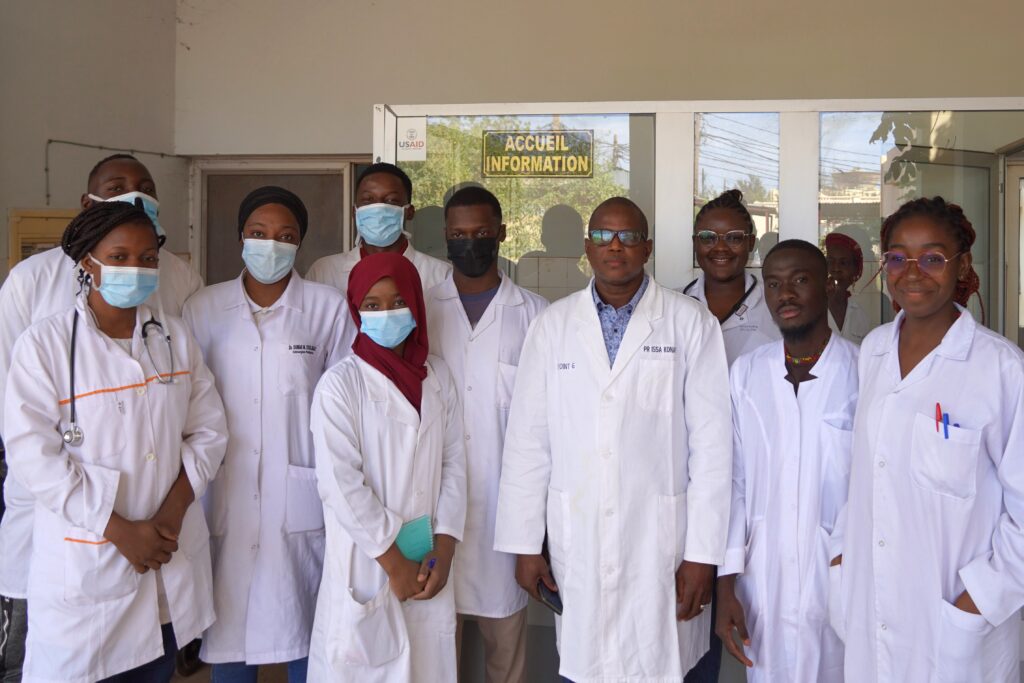Preventing the Spread of Infections in Mali
Preventing the Spread of Infections in Mali
How USAID is Helping Mali’s Health Workers Protect their Patients and Themselves
This article was original published by USAID Mali.
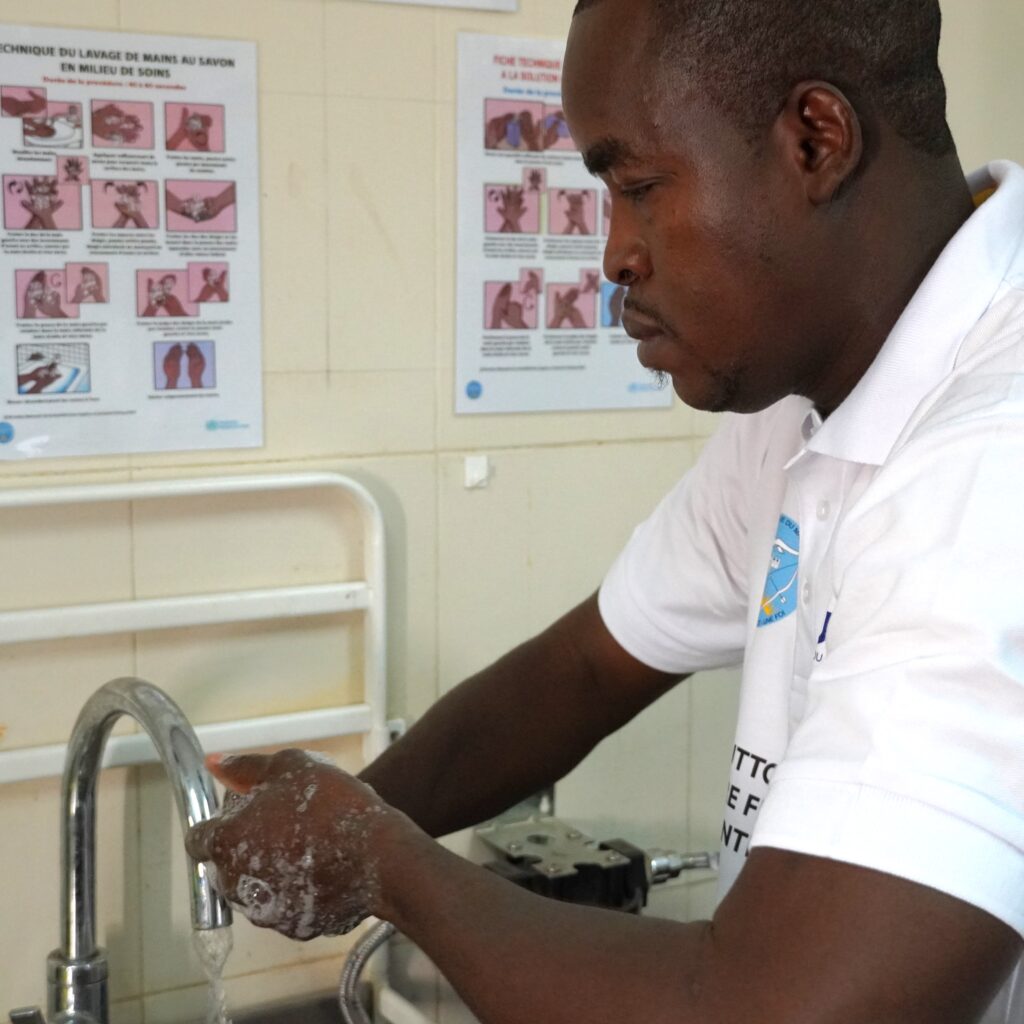
Good hygiene in health care facilities is critical to keeping both patients and health workers healthy. Maintaining those standards and ensuring that health care workers have the knowledge and skills they need to properly care for health facilities, however, can be challenging. In Mali, USAID is working with health workers to keep hospitals and health centers clean. Funded by USAID’s Medicines, Technologies, and Pharmaceutical Services (MTaPS) Program, free online classes help teach health workers how to effectively prevent the spread of infections, keeping them and their patients safe.
Professor Issa Konaté, an infectious disease specialist at the Point G Hospital, and his colleague, Kalifala Samaké, a pharmacist at the Luxembourg Hospital, share their experiences after enrolling in the program.
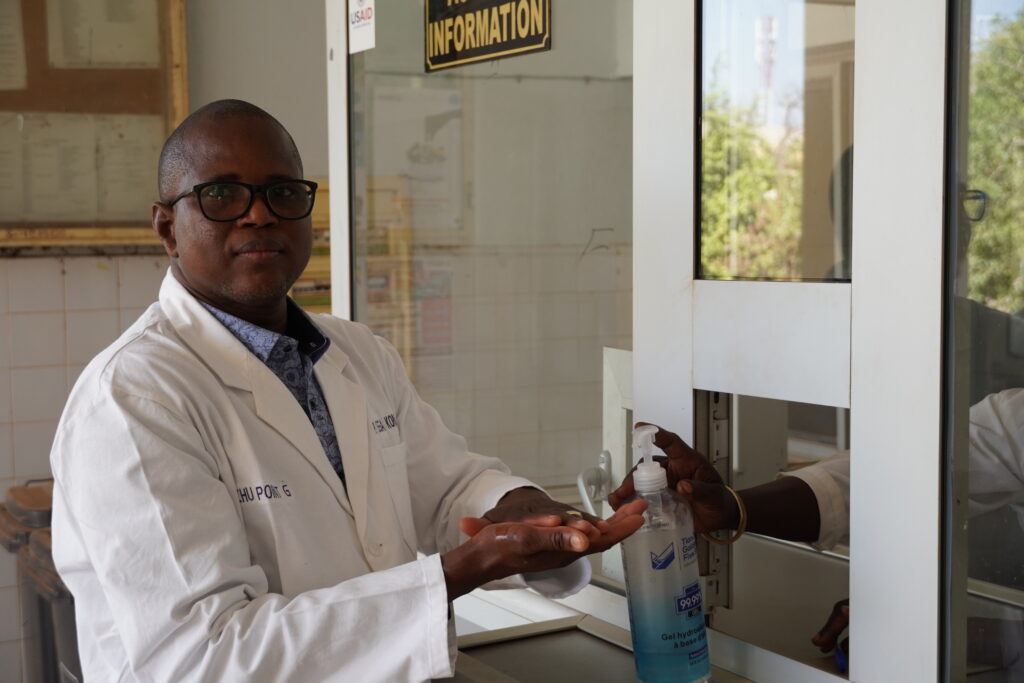
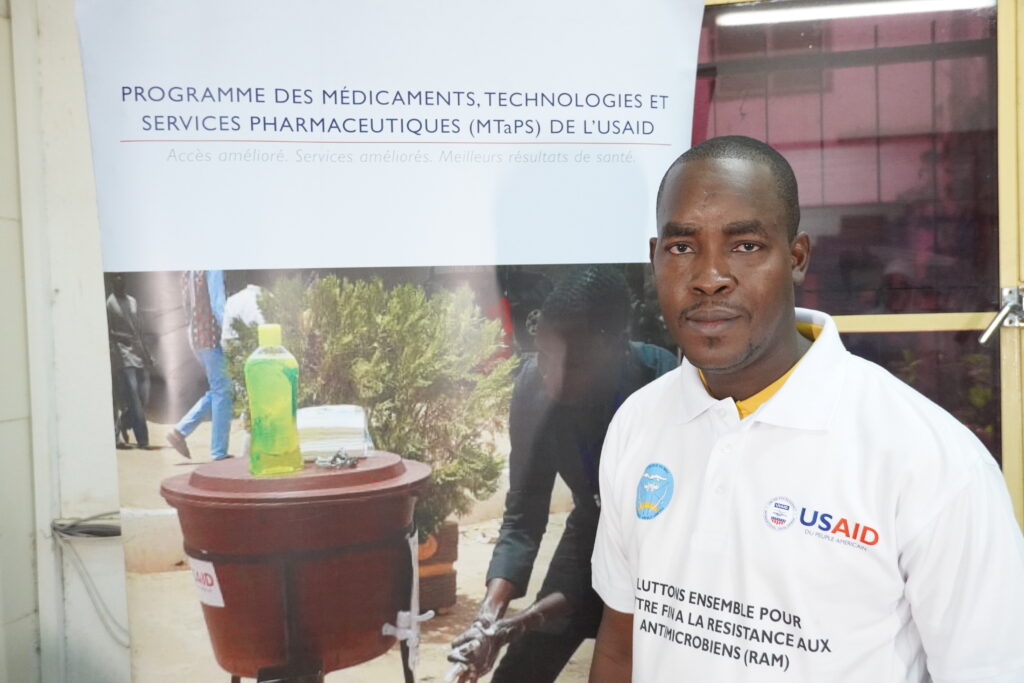
Providing trusted information to health workers
Finding reliable information on effective infection prevention can prove challenging in Mali where misinformation often clouds fact. A baseline assessment conducted in 2020 by the General Directorate for Health and Public Hygiene revealed that only one of the 16 facilities assessed had implemented World Health Organization (WHO) guidelines to combat infections. This is where USAID came in.
USAID worked with the General Directorate for Health and Public Hygiene, the National Institute for Health Sciences, and the Faculty of Medicine and Ondostomatology’s Faculty of Pharmacy to establish an e-learning platform offering 10 modules on infection prevention and control (IPC). Launched in 2021, these courses aligned with national guidelines and international best practices to prevent and manage infections, including those caused by multidrug-resistant bacteria.
“Before knowing the existence of this platform, I relied on search engines and websites,” Kalifala Samaké, “said which sometimes provided unreliable information.”
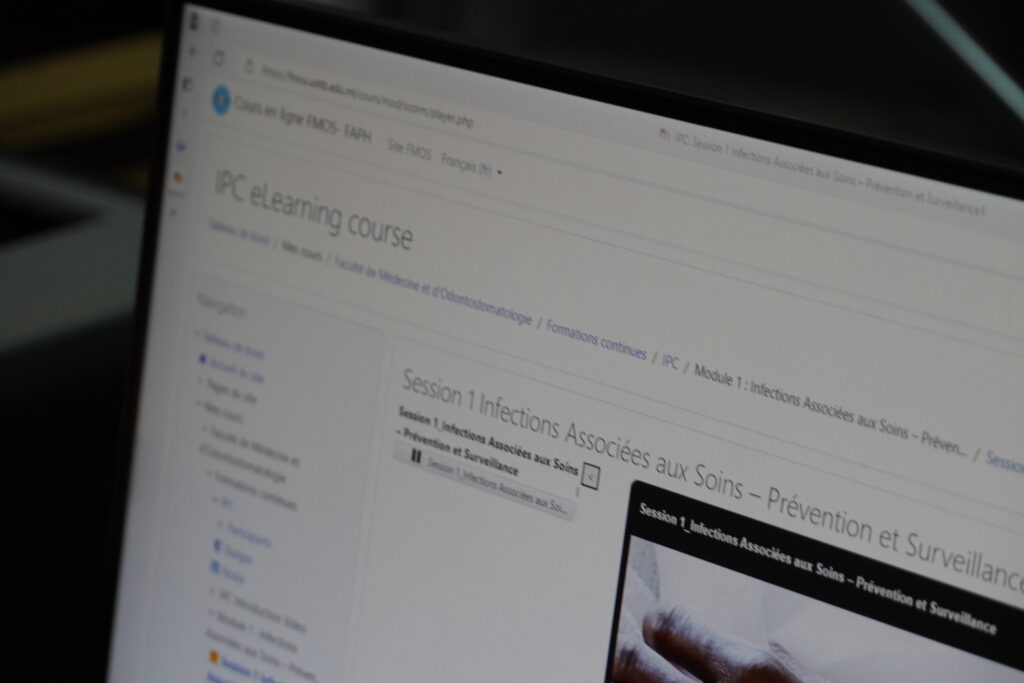
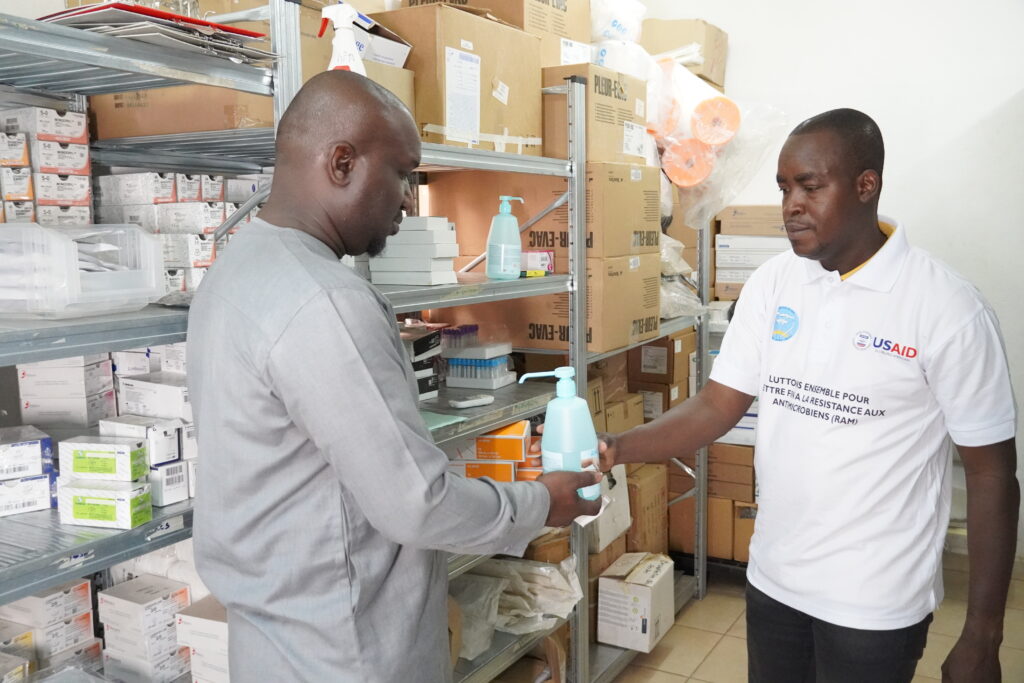
Both Issa Konaté and Kalifala Samaké emphasize the user-friendly nature of the platform and its role in facilitating personal growth.
“In addition to the regular tests provided for each module, the platform offers a pre-course self-assessment test, allowing learners to gauge their existing knowledge and track their progress,” said Konaté. “The certification received upon completion is invaluable, demonstrating our understanding of the concepts learned.”
“Preventing the spread of diseases in health facilities is often overshadowed by the focus on diagnosis and treatment,” said Issa Konaté. “However, it is imperative for us, especially in units where patients are particularly vulnerable to healthcare-associated infections, to prioritize infection prevention and control measures.”
Online courses support quality care for clients
By March 2024, 372 health workers had registered for the online courses; 76 successfully completed the program and received their certificates. Armed with new information and skills, staff have been better able to prevent the spread of diseases and have provided higher quality of care. Between 2020 and 2024, the number of health facilities that reached an advanced level in combating infections increased from one to nine-out-of-16 health facilities supported through USAID’s MTaPS project. That’s an 800 percent increase over four years.
Boh Kalifala Samaké and Issa Konaté have seen the benefits of this work within their own health facilities. Kalifala has become more vigilant about hygiene, ensuring that he washes his hands after every procedure to prevent the spread of germs. He also shares his knowledge with his colleagues, from cleaners to medical doctors, promoting best practices in IPC.
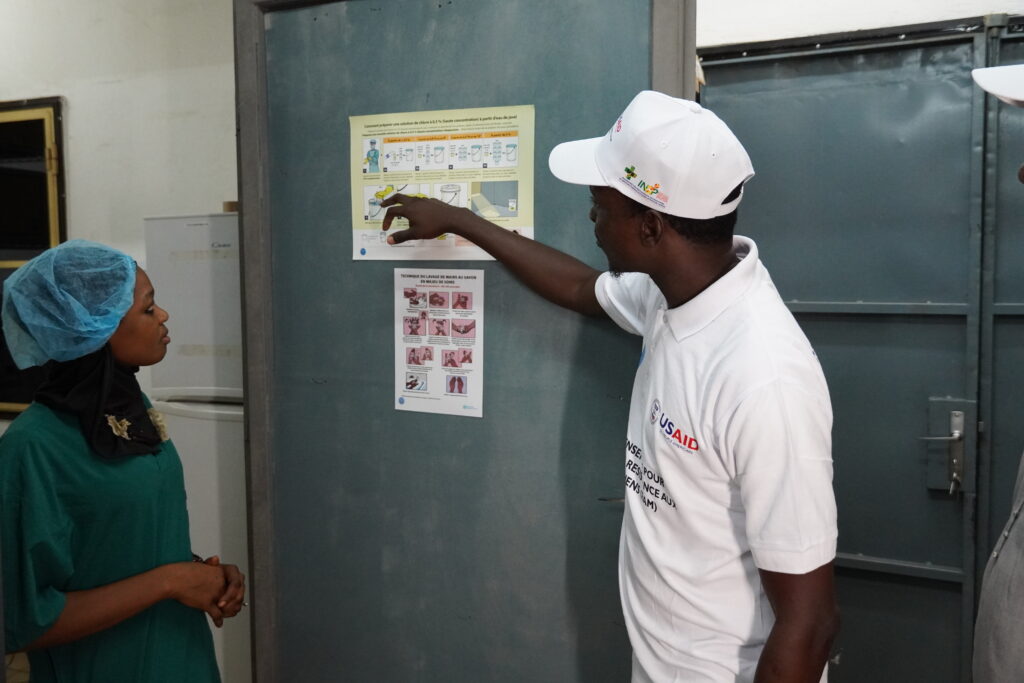
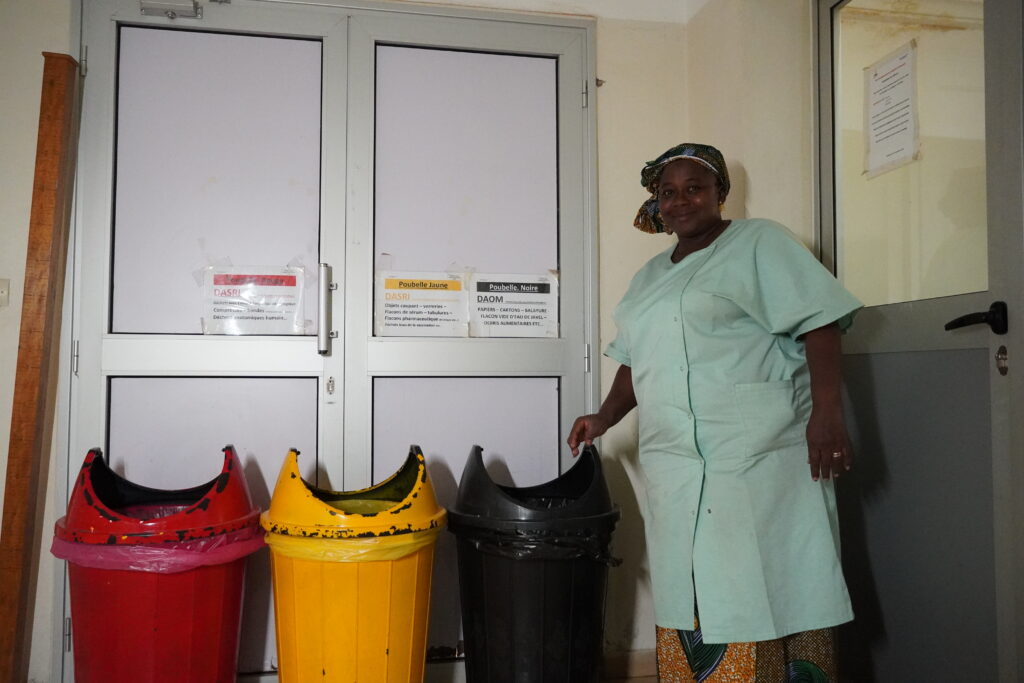
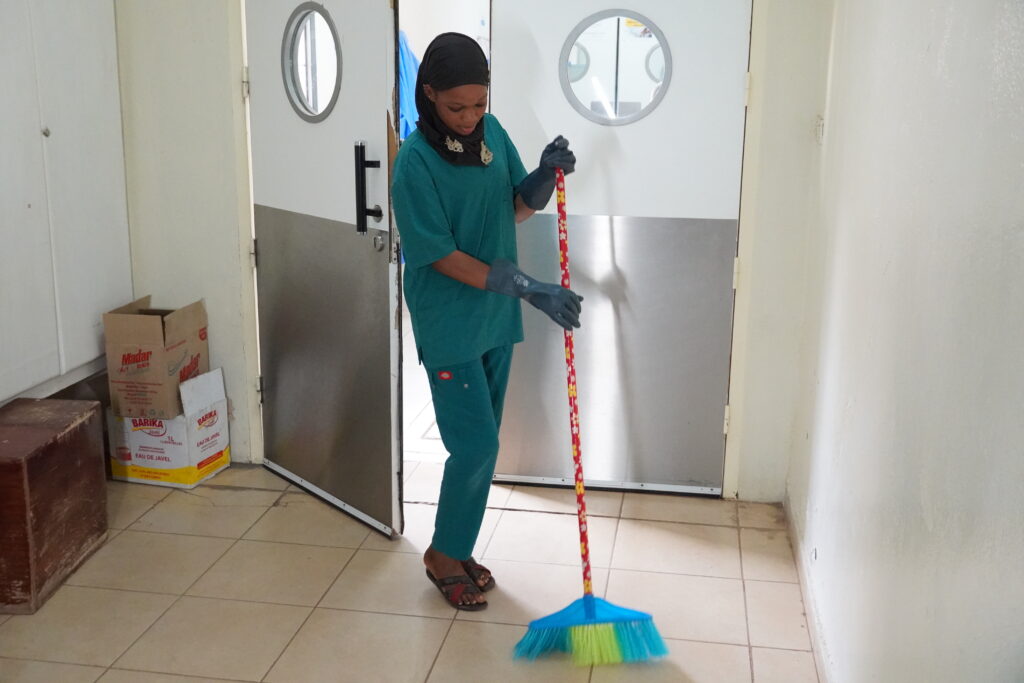
Issa highlights the broader benefits across the hospital and community. At the Point G Hospital, both health practitioners and the general public expressed concern about the size of rooms where patients typically rest during their stay. Issa shares that people visiting their loved ones were often crammed together in a small space; this could easily lead to the spread of infections. The hospital staff, drawing from their training, rearranged the welcome space so visitors could wait in a safe and more comfortable environment and attached monitors to the wall which highlight important messages on a loop to help prevent the spread of infections.
USAID has also influenced the curricula of the Faculty of Medicine and Pharmacy of Bamako, with infection prevention becoming a key component of academic programs. Including the e-learning certificate as a requirement to validate students’ practical training is currently under discussion.
Issa, who also works as a university teacher, notes the growing interest among students and professionals in taking these courses to enhance their skills.
I’ve seen a lot of enthusiasm for these online courses. Whether it’s students seeking to deepen their understanding or seasoned professionals wanting to stay updated, the flexibility offered by these courses is invaluable in our busy lives.
Issa Konaté
